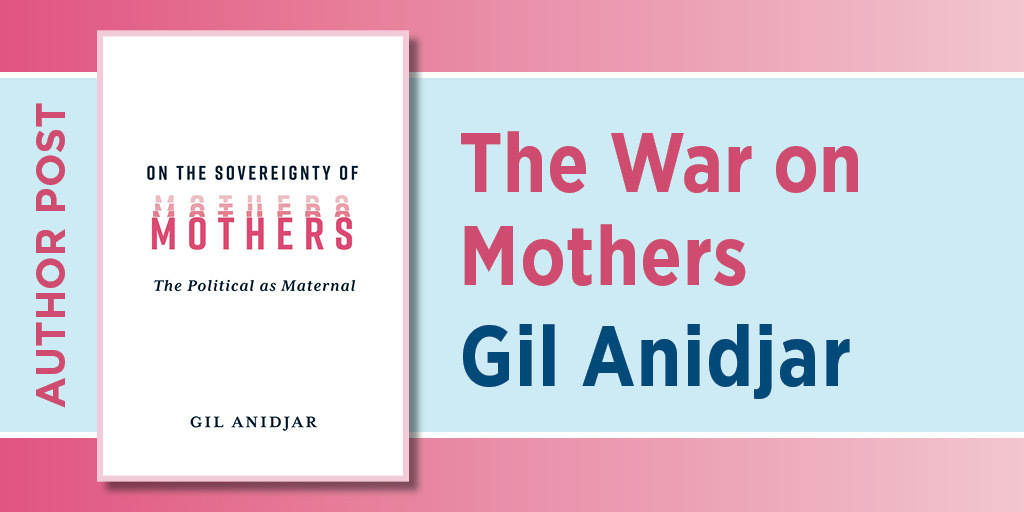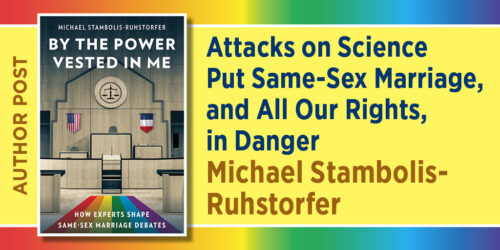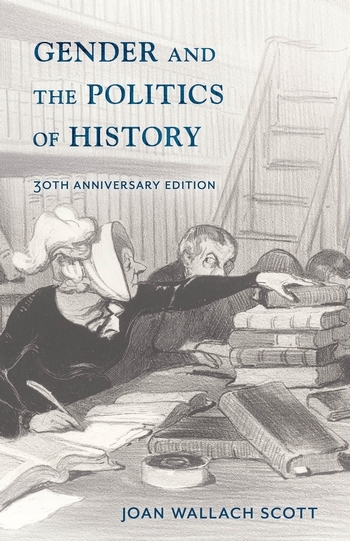The War on Mothers
Gil Anidjar

I am my mother’s child. Like every soul on earth, I have been mothered. Whence my writing on, to and from, mothers.
We tell ourselves many stories, and many of them have to do with beginnings. The Mayflower, the American Revolution, the Founding Fathers, the Declaration of Independence. Or else we speak of principles, of founding principles. Liberty, equality, individualism. On the face of it, the so-called “debate” on abortion, along with its prominence, confirms our shared concern with birth and beginnings. It certainly testifies to founding principles.
But perhaps this is not the only way to understand the debate. Not as a debate at all, but rather as a struggle over stories of beginning, over founding principles. Not liberty but life. Not equality but order, not individualism but family. If this is the struggle, it might be necessary to ask again whom it opposes and how. It might be time to wonder whether so-called “conservatives” are revolutionaries in disguise, less invested in an idealized past (great or otherwise) or in founding fathers (and, again, certainly not mothers) than in the making of a radically new world. Were this the case, it would make of their opponents—of those who continue to clamor for liberty, equality and individualism—the unwitting and, yes, conservative defenders of a vanishing past, staunchly attached to beginnings and foundations, to origin stories.
Now, Simone de Beauvoir already argued 75 years ago that those who claim the mantle of “life” are, after all, more than eager to mete out death (by way of war, mostly of war, near and far, but also by pushing for capital punishment—innocence be damned—and other forms of violent policing, at the border and elsewhere). They advocate for more cutting (or gutting) of health, education, and social services. They seek a new and harsher world and, in their revolutionary struggle, they seek to seize ever more of the means of production and of reproduction.
They seek a new and harsher world and, in their revolutionary struggle, they seek to seize ever more of the means of production and of reproduction.
Yet, by insisting on referring to them—as if we are not them—as “conservatives,” we fail to note that those “militants of death,” as Jacques Derrida called them, are novel world-makers (world-destroyers too, but who’s counting?). In crusading, as they claim, for the unborn children, they give preference to a form of life that, unfound in any sacred text, is looming ever closer to engulf us. They aim toward a horizon in which the collapse will be absolute of spirit and flesh, of law and life.
If the so-called “conservatives” are clearly appealing to the future (natality as beginning, concern with the onset of life), it makes sense that—death militancy aside—they would claim the child as their cause. And since this is, after all, a struggle over origins, over birth and beginnings, and over founding principles, rather than a struggle between, say, men and women, (many women are, after all, against abortion,) it would make sense to expect a rejoinder claiming another origin, a better beginning: the mother.
Or rather, mothers.
Yet it is striking that mothers are hardly mentioned in the debate. In fact, much of the discussion—on the “progressive” side—centers on women, and on women for whom pregnancy is an accident or worse, much worse. It is a strange view of abortion that it would not be conceived (yes, conceived) from the perspective of mothers. This admittedly requires a further contortion of our understanding, as mothers have too long been confined to matters of pregnancy and birth, as we ourselves seem instead concerned with questions of choice (over pregnancy and birth) or the “true” beginnings of life. What the debate on abortion occludes—on both sides of the aisle now—are the extended temporalities of maternality.
Yet it is striking that mothers are hardly mentioned in the debate.
Allow me to rephrase: The war on abortion is a war on mothers. It is a war that implicates not only matters of birth and of natality, but also the very terms and conditions of our collective existence. It is a war on the very means of production and reproduction (and means of destruction, too,) of our collective existence. This is why it is important to recall that mothers are not only women (even if they have obviously been mostly women). Mothers are rather the essential workers, the broad frontline of an indispensable political infrastructure whereby collectives maintain themselves and continue to exist in time, the very means by which collectives reproduce themselves. Over time. Mothers are the keepers and instructors of times, bodies, and languages. They are mothers and surrogates, nurses and nannies, servants and caregivers, teachers and educators. They are those who preserve and transmit, inscribe and reinscribe, reproduce and therefore enable the preservation, and the transformation, of all collectives in time.
This is not a normative matter. It does not have to be that way, but it is and has been. For a very long time, and since the beginning of times, mothers have mothered. There are and have been many mothers, many more mothers than any one, and individual, mother. And it is these many mothers—not always women, to repeat, and very often servants or slaves—that have enabled the very fact of our collective existence. We have all been mothered. More or less well. More or less by our own mothers, grandmothers, stepmothers, aunts or sisters, nurses or nannies, neighbors or teachers, any number of those othermothers (as Patricia Hill Collins called them). Sometimes even by fathers. But the long and extended labor of mothers and othermothers was never, could never, be restricted to birth. We have all been mothered. Over time.
This is why, finally, we need to be clear that the political is maternal. Because no collective could exist in time, no collective could maintain itself in time, without mothers, without the work of mothering. Whether a collective should continue to exist, whether it does in fact reproduce itself, is contingent (were it that we could ask, truly ask—as Troy, Sodom, Rome, or the British Empire were forced to ask—whether our collective is worthy of the task). No collective is necessary. Its existence is contingent on its understanding, its material and metaphysical understanding, of what makes it possible, what makes it endure—the means of reproduction it gives itself. Whatever means these have been and continue to be, mothers have been there, have done that, have been that. Whether they are willing, and able, to continue doing so is another question. A political question.
The war on abortion is a war on mothers.
And mothers have always had to answer that question; dangerously, they’ve also had to decide on who joins, who comes in and who does not. They have guarded the true border, measured the real safety and safety standards, ensured that they themselves and the children would be properly, that is, sufficiently mothered. That is why mothers have always been the mothers of the born and of the unborn, and why there are mothers who have given birth and mothers who have not given birth, but have mothered in other ways. They have done so more or less well. For their own children and, more often than admitted, for the children of others. Under innumerable (and often unspeakable) conditions, they have raised and nourished, held and cared for, taught and educated, sometimes had to abandon and kill (as did Sarah and Jocasta, not only Medea and Margaret Garner), not for themselves but for the world around them, with and without the world around them. Mothers have ensured that collectives endure in time.
Whether mothers will (or should) continue, whether they will be mothered is, today, very much in doubt. As is the future of all, of course (those of us who might still have one). Not because abortion threatens that future. Not because the life that is called sacred is, in fact, oriented toward death, toward mass death (think of the food and of the water, think of the air and of the earth; think of the bullets and the bombs). But rather because of the value we grant mothers, the recognition (and lack thereof) that mothers are the true measure of our collective existence in time.
It is time for us, we who have been mothered, to become truly political, to commit, finally, to the maternal contract that makes us. Let us begin indeed. With mothers.
Gil Anidjar teaches in the Department of Religion and the Department of Middle Eastern, South Asian, and African Studies at Columbia University. He is the author of On the Sovereignty of Mothers: The Political as Maternal.
Categories:Author-Editor Post/Op-EdFeminist TheoryGender StudiesPhilosophyPoliticsWomen's History MonthWomen's Studies
Tags:AbortionDecision 2024feminismGender PoliticsGil AnidjarInform Your Votematernal labormother's dayMother's Day 2025motherhoodOn the Sovereignty of MothersReproductive Justicesovereignty of mothersStay InformedWomen's History Month 2025Women's rights






